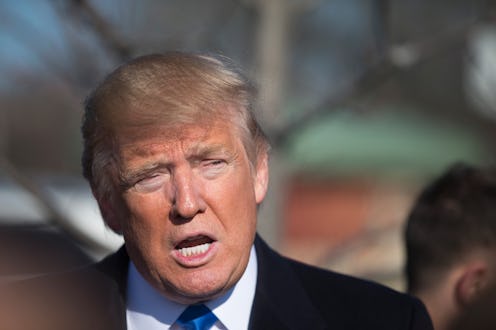News
How Many States Have Unbound Delegates?
The race for delegates is on a razor’s edge in the Republican primary, and the odds of a contested convention are rising by the day. If the GOP convention is indeed contested, there will be an immediate focus on unbound delegates, who can vote for whomever they please at the national convention. But which states have unbound delegates?
The short answer is that... there is no short answer. Thanks to several factors that I’ll go into in a moment, it is literally impossible to determine, at this point in the cycle, precisely which states will and won’t have unbound delegates. We can get a general idea of where most of the unbound delegates will come from, but in a lot of states, there simply isn’t enough information to arrive at a firm conclusion.
But first, let’s look at the easy cases. In seven states and territories, some individuals don’t pledge themselves to a specific candidate when they run for delegate slots. In certain states, delegates merely have the option of being unaffiliated, while in other places, they’re required to be so. Either way, the result is that some or all of the state or territory's delegation is completely unbound at the national convention. North Dakota, Pennsylvania, Wyoming, Colorado, American Samoa, Guam, and the U.S. Virgin Islands are the states and territories that use this system.
In addition, two states have complicated allocation rules that, depending on the outcome of the vote, could create unbound delegates. In general, this means that they allocate their delegates proportionally but also require candidates to clear a minimum threshold of the vote to qualify for any delegates at all. This system can create “spare” delegates that are ineligible to be bound to anyone and, as a result, enter the convention unbound. The states that use such a system are Mississippi and Louisiana.
From here, it gets a whole lot thornier. There are a lot of states where a subset of delegates could theoretically become unbound, but only if certain events transpire between the primary and the convention. There are, by my count, at least 10 places that fall into this category: Utah, Virginia, Tennessee, Arizona, Maine, Michigan, Kentucky, Nevada, Minnesota, and Washington, D.C.
The uncertainty mostly revolves around the question of candidates who’ve won delegates but since dropped out of the race. In most places, these delegates are re-allocated to the remaining candidates, while in others, they become unbound. But wait — what’s the definition of “dropping out” of the race?
In some states, like Maine, a candidate has to legally dissolve their campaign in order for their delegates to become unbound. In others, like Michigan, a candidate's delegates become unbound as soon as they announce that they’ve “suspended” their campaign. There are some states that literally don’t have a rule for these situations, like Virginia; this will probably cause disputes on the convention floor. In Minnesota, a candidate’s delegates become unbound if they drop out but re-bound if they re-enter the race. And then there’s Kentucky, where an extremely complex process takes place on the convention floor that results in some delegates becoming what I would call “semi-unbound.”
All of this is a long way of saying that these states could potentially send a few unbound delegates to the convention. But we really won’t know until the convention itself. Between now and then, candidates could drop out or suspend their campaigns. Withdrawn candidates could re-join the race, and state parties could hold meetings and votes to clear up vagueness in the rules, and so on. We just don't know.
While it’s unclear precisely how many states will have partially or completely unbound delegations, it is clear that there will probably be around 200 unbound delegates at the convention in July. That’ll be more than enough to swing the nomination if the convention is contested — and if that happens, the intricacies of these arcane delegate rules will suddenly become very, very important.
